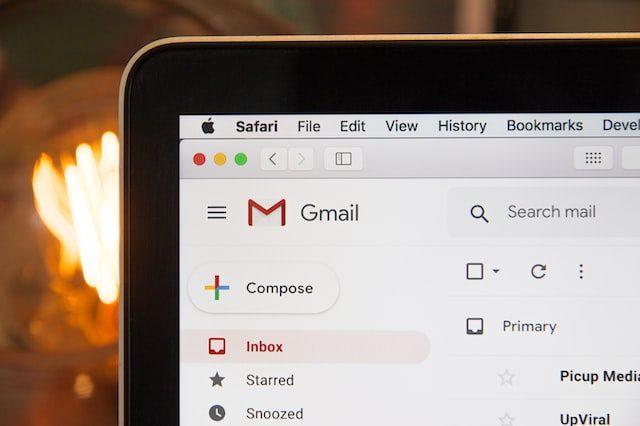Is emailing fraught with anxiety?
If you’re like most of my clients, and me for most of my adult life, writing emails can be a source of massive anxiety. Maybe it takes you an hour to fire off a straightforward one-liner, or you agonize for days (weeks, months?) over something more complicated. Been there!
I have a long history of putting off emails for so long it becomes super awkward, then putting it off more because it’s awkward, and then, because I need to resolve the situation in my head, I’ll reply six months later, after the other person had completely forgotten the thing I’d been obsessing about for ages. (I’m proud to report that I now only put them off occasionally, and only by a few days, maybe a week. Major improvement!)
I’ve heard more people than I can count tell me stories like this in tones of shame and regret. As if there’s something terribly wrong with them for not happily replying to every email immediately upon receipt. I don’t see it that way.
There’s a history behind the email
When you sit down to write an email, it’s not just about the email. There’s a whole history leading up to this one email right now.
When I feel that welling up of anxiety, I find it helpful to recognize that there’s a reason why I have this anxiety. I have a history of people reacting in ways I wasn’t expecting.
What I learned early on is that I didn’t know what to expect from people.
Those reactions weren’t always bad, though sometimes they were, but either way it wasn’t what I was expecting. What I learned early on is that I didn’t know what to expect from people.
So, years later, I’m not just writing an email, I’m facing the task of trying to figure out how to choose words that achieve the effect I want, although I am clearly terrible at predicting how people will react to things I say or write.
How can I possibly achieve my goal if every attempt at communication feels like pinning a tail on a donkey while blindfolded and dizzy??? (I hated that game, by the way. I always found it triggering, and now I wonder if this is part of why.)
Of course there’s going to be anxiety there!
That innocent looking email window morphs into a barrage of intrusive thoughts, like: What’s going to happen? Are they going to take this the wrong way? Are they going to assume something I didn’t intend? Are they going to actually be supportive? Will they answer one thing and miss three others? Will they miss or ignore the important part? Will I have to go through this all over again to clarify what I said, or ask for information I already asked for and that they didn’t reply to? How many times will I have to go back-and-forth? I don’t know!
These were my thoughts. Yours might be different. But there’s a reason why you’re experiencing that anxiety. There’s a reason why your brain is associating that email with something (fear?) at a deep level. So, of course you’re going to put off the thing that feels dangerous.
And even when it works out fine, your brain is likely to not register that as a success, but as a lucky break, and one that won’t last, because next time might be different. Every email is a gamble. Every communication is a risk. Some wins don’t mean you’re a winner, just that the odds came up in your favor this time.
Where to start
Dismantling this pattern starts with acknowledging that there is a history (it’s not a personal failing), and giving yourself some compassion around it.
I’d guess that you didn’t have anyone in your young life who kindly and explicitly taught you the ins and outs of communicating clearly and effectively with a wide range of people, and dealing with miscommunications in ways that are positive and supportive to both parties. Am I wrong?
It’s not your fault if you didn’t have people around you growing up who were able to teach you these things (they probably didn’t know themselves). It’s not your fault for not getting there on your own, especially when you were young.
And now the circumstances are different. You’re in a much better position to be able to learn healthy communication. Although I’ll bet you already have learned quite a bit on your own through trial and error and modeling people who were good at it when you came across them. Give yourself credit for that, to whatever extent it is true!
Moving forward
The second part is learning strategies to manage your anxiety in the moment so that it’s not as intense, so you can deal with what’s going on underneath. There are a lot of good resources out there for anxiety management, and I’ll be posting more soon as well. Find a few techniques or strategies that work for you to calm your nervous system.
The third part is the dealing with what’s going on underneath. That will mean different things for different people, based upon your individual history and circumstances and preferences. So, I’ll just make a few notes here of things I have often found helpful, and helped my clients with:
I’m a big fan of Internal Family Systems, Byron Katie’s The Work, Acceptance and Commitment Therapy, and Martha Beck’s Wayfinder approach to life improvement (this is the life coaching model I was trained in). Working with an actually autistic or neurodivergent coach can often be extremely helpful (it doesn’t have to be me).
This can actually rewire the brain in the long term to have very different associations with the whole email thing.
It’s possible to get to the point that you’re able to notice your anxiety coming up in real time, recognize when you’re reacting to a history and not only this present circumstance, to reduce the intensity of that anxiety, and then talk yourself through it. At this point, emails can begin to feel fundamentally different than they used to. This can actually rewire the brain in the long term to have very different associations with the whole email thing.
A vision of what’s possible
I’m at the point where, most of the time, I don’t have any particular reaction to routine emails, and can answer them pretty easily as long as I have the brain space and energy.
For some that are more complicated or delicate, I might get a twinge in my stomach and can talk myself through it.
Occasionally something will still trigger a bigger reaction and I might put it off for a week or so, admittedly ruminating a little, but I’ll go back to it and talk myself through it, to send an appropriate and non-reactive message.
When I say “talk myself through it,” I mean that I will literally talk to myself, in my head or out loud, something like, “Well, there’s a reaction there. Yep, I’m feeling some big feelings, and I’m a lot better at dealing with feelings than I used to be. In fact, I know that what I need to do right now is to take a few deep breaths. Breathe. Breathe. Breathe. And I know that I’m having this reaction because I have a history with people. Peopling used to feel like roulette, but I’ve gotten so much better at this. Especially in the last few years, I have gotten so much better. And when miscommunications happen, I am so much better and dealing with it now than I ever have been. It doesn’t turn into a big thing anymore. I can handle it. And I can handle this too. So I can write this, and it’ll be fine. I’m going to be okay.”
It probably seems super cheesy, but it works for me. And yes, I actually talk to myself like that. If it works, I’m OK with the cheese.
I’m sure it’s possible to get even more comfortable with myself, and hence with others, so this feels even more doable, but I don’t want to oversell. Anyway, I’m not there yet, so I don’t know for sure.
How is this landing for you? Feel free to share your thoughts in the comments below.




